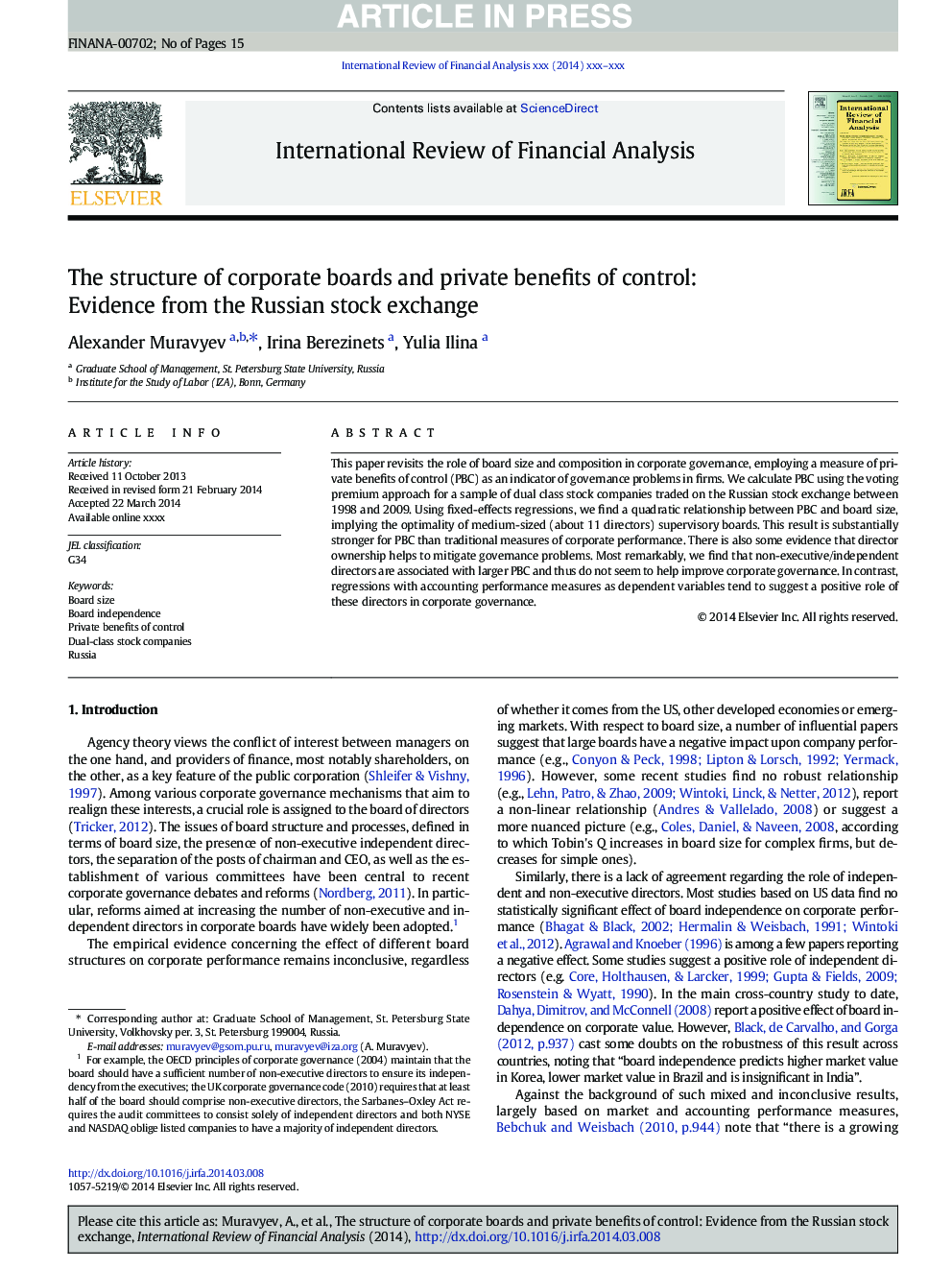| Article ID | Journal | Published Year | Pages | File Type |
|---|---|---|---|---|
| 5084884 | International Review of Financial Analysis | 2014 | 15 Pages |
Abstract
This paper revisits the role of board size and composition in corporate governance, employing a measure of private benefits of control (PBC) as an indicator of governance problems in firms. We calculate PBC using the voting premium approach for a sample of dual class stock companies traded on the Russian stock exchange between 1998 and 2009. Using fixed-effects regressions, we find a quadratic relationship between PBC and board size, implying the optimality of medium-sized (about 11 directors) supervisory boards. This result is substantially stronger for PBC than traditional measures of corporate performance. There is also some evidence that director ownership helps to mitigate governance problems. Most remarkably, we find that non-executive/independent directors are associated with larger PBC and thus do not seem to help improve corporate governance. In contrast, regressions with accounting performance measures as dependent variables tend to suggest a positive role of these directors in corporate governance.
Related Topics
Social Sciences and Humanities
Economics, Econometrics and Finance
Economics and Econometrics
Authors
Alexander Muravyev, Irina Berezinets, Yulia Ilina,
